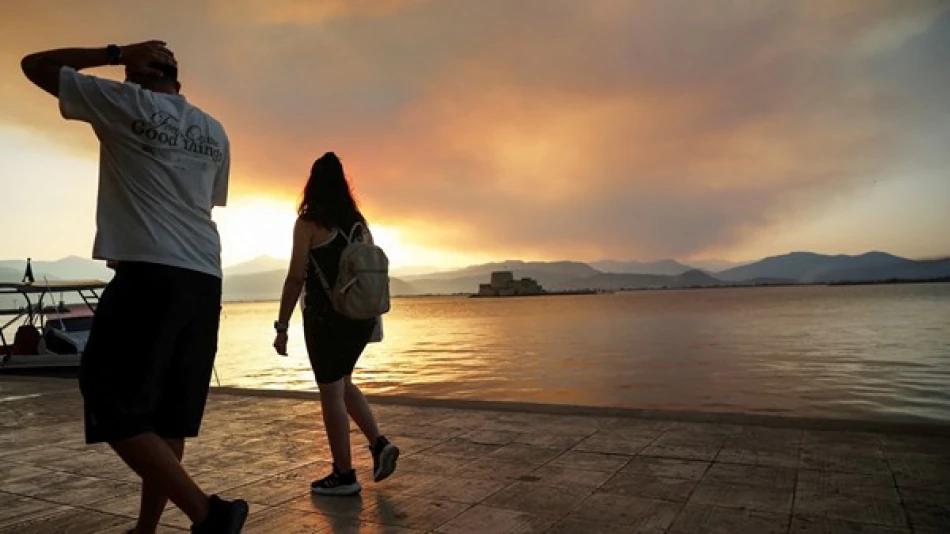
Raging Wildfires Prompt Mass Evacuations Across Greece's Forests
Greece Battles Major Wildfire Near Corinth as Mediterranean Fire Season Intensifies
A massive wildfire erupted in mountainous pine forests near Corinth, west of Athens, forcing authorities to evacuate multiple villages as Greece confronts another devastating fire season. The blaze highlights the Mediterranean nation's growing vulnerability to extreme weather events that have become increasingly destructive and frequent over the past decade.
Massive Emergency Response Mobilized
Greek fire services deployed over 180 firefighters to combat the flames, supported by an impressive aerial fleet of 15 firefighting aircraft and 12 helicopters. The operation unfolded under brutal conditions, with temperatures soaring above 40°C (104°F) across multiple regions—creating the perfect storm for rapid fire spread.
The scale of this response reflects lessons learned from Greece's tragic fire history. Authorities have significantly expanded their firefighting capabilities since the catastrophic 2018 Mati fire, which killed over 100 people and exposed critical gaps in emergency preparedness.
Aviation Incident Compounds Emergency Challenges
In a separate incident that underscores the dangerous conditions firefighting crews face, a helicopter crashed into the sea while collecting water to combat another blaze near Athens. All three crew members were rescued and hospitalized, but the incident highlights the extreme risks involved in aerial firefighting operations during severe weather conditions.
Such accidents are becoming more common as Mediterranean countries increasingly rely on aviation assets to reach remote, mountainous terrain where ground crews struggle to operate effectively.
Greece's Fire Crisis Reflects Broader Mediterranean Trend
This latest outbreak continues Greece's pattern of recurring summer wildfires, driven by prolonged drought and extreme heat. Greek authorities have already battled dozens of fires across the country this year, part of a broader Mediterranean crisis that has also devastated parts of Spain, Italy, and Turkey in recent summers.
The frequency and intensity of these fires have escalated dramatically since 2018, when climate scientists began documenting more extreme fire weather conditions across Southern Europe. Greece now experiences fire seasons that extend well beyond traditional summer months, with some blazes occurring as late as October.
Economic and Environmental Stakes Continue Rising
For Greece's tourism-dependent economy, these recurring fire emergencies pose mounting challenges. The country attracts over 30 million visitors annually, many drawn to its coastal and mountainous regions—precisely the areas most vulnerable to wildfire damage.
Beyond immediate economic impacts, these fires accelerate environmental degradation in a region already stressed by overtourism and development pressure. Pine forests like those burning near Corinth require decades to regenerate, while repeated fires can permanently alter local ecosystems.
The 2018 Mati tragedy remains a stark reminder of what's at stake. Residents trapped in their homes and on roads faced an inferno that moved faster than evacuation efforts could respond, with some victims drowning while attempting to escape by swimming to safety.
Infrastructure Investment Shows Mixed Results
Greece has invested heavily in firefighting infrastructure since 2018, expanding both ground crews and aviation assets. However, the persistence of major fires suggests that prevention and early detection—rather than response capacity alone—may hold the key to reducing future catastrophes.
As climate patterns continue shifting toward more extreme fire weather, Greece's experience offers sobering lessons for other Mediterranean nations grappling with similar challenges.
Most Viewed News

 Layla Al Mansoori
Layla Al Mansoori






